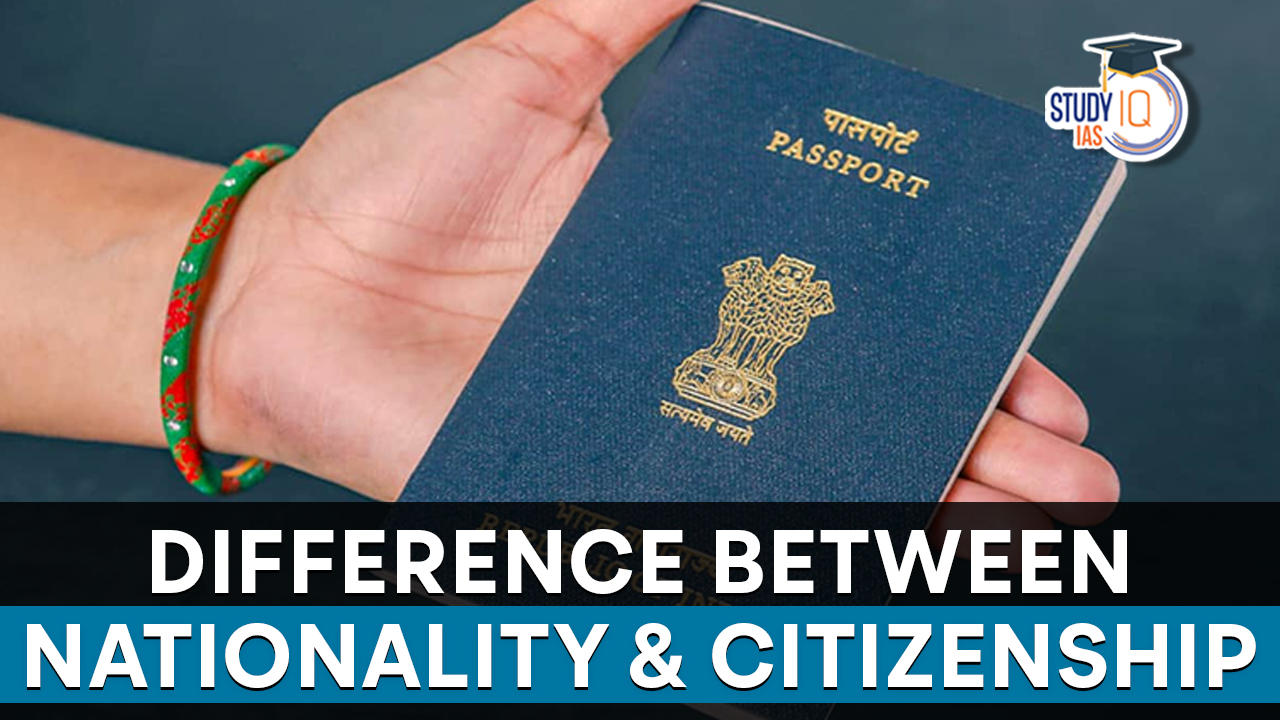Table of Contents
Difference Between Nationality and Citizenship
Difference Between Nationality and Citizenship: In a world characterized by diverse cultures and interconnected societies, the terms “nationality” and “citizenship” often emerge in discussions about identity, rights, and belonging. While they may seem synonymous at first glance, nationality and citizenship carry distinct connotations and legal implications.
Understanding these differences is crucial in comprehending how individuals establish their ties to a particular country and the rights and responsibilities they hold as members of a nation. This article delves into the Difference Between Nationality and Citizenship that set nationality and citizenship apart, providing clarity on their significance and the complexities they add to the intricate tapestry of human affiliation.
Definition of Nationality
Nationality refers to the legal relationship between an individual and a specific nation or country. It denotes a person’s membership or affiliation with a particular nation, often determined by birth or through other means like naturalization or descent. Nationality defines a person’s political identity in the context of a specific country and grants certain rights and obligations associated with being a member of that nation.
Definition of Citizenship
Citizenship is a legal status that recognizes a person as a full member of a particular country or nation. It is a subset of nationality that represents a more formal and active relationship between an individual and the state. Being a citizen grants specific rights, privileges, and responsibilities within the political community.
In summary, nationality represents the legal relationship between an individual and a country, while citizenship emphasizes the active participation and responsibilities that come with being a member of that country. In many cases, the terms are used interchangeably, but it’s essential to understand their subtle distinctions in legal and political contexts.
Key Difference Between Nationality and Citizenship
Check here the Key Difference Between Nationality and Citizenship from every aspect in detail.
| Aspects | Nationality | Citizenship |
| Definition | The status of belonging to a particular nation. | Legal membership in a specific country or state. |
| Basis | Typically acquired by birth within a country’s borders or through descent from parents who are nationals of that country. | Obtained through legal processes such as birth, naturalization, or marriage to a citizen. |
| Multiple Citizenship | Many countries allow dual or multiple nationalities, meaning a person can hold nationality in more than one country. | In some cases, dual citizenship is permitted, but not all countries allow it. Some countries require individuals to renounce other citizenships upon naturalization. |
| Rights and Benefits | Nationality often grants cultural identity and limited rights in the home country, such as the right to live and work there. | Citizenship provides full legal rights, including voting, social benefits, and protection by the country’s laws and government. |
| Obligations | Nationals may have some obligations, but they may not be as extensive as those of citizens. | Citizens are required to obey the country’s laws, pay taxes, and possibly perform military service when applicable. |
| Passport Issuance | Nationals may be eligible for a national passport, but the privileges it provides can vary. | Citizens are entitled to a valid passport from their country, facilitating international travel and consular assistance. |
| Duration of Status | Nationality is generally a lifelong status unless voluntarily renounced or revoked by the country. | Citizenship is also typically lifelong, though it can be revoked in cases of fraud or certain criminal acts. |
| Inheritance | Nationality can be inherited from parents in some countries, even if the child is born outside the country’s borders. | Citizenship by birthright is granted in some countries if born within their territories, regardless of parents’ nationality. |
| Political Participation | In many cases, nationals may not have the right to vote in their home country’s elections if residing abroad. | Citizens generally have the right to vote and participate in the political processes of their country. |
| Diplomatic Protection | Nationals may receive some limited consular protection while abroad, but not the full extent of assistance provided to citizens. | Citizens are entitled to full consular assistance and protection from their country’s embassies or consulates in other nations. |
| Stateless Individuals | A person may be stateless if they have no recognized nationality or citizenship in any country. | Citizenship ensures legal recognition and protection, preventing statelessness. |
Difference Between Nationality and Citizenship UPSC
The distinction between Nationality and Citizenship is a crucial topic for the UPSC exam as it falls under the Indian Polity and Constitution sections of the UPSC Syllabus. Understanding the basis, acquisition, and implications of both concepts is essential for aspirants to grasp Indian citizenship laws, international relations, and the rights and duties of citizens in a democratic nation. Mastery of this topic through UPSC Online Coaching and UPSC Mock Test enables candidates to analyze legal and political issues, demonstrate analytical thinking, and excel in the exam.
| Other Difference Related Important Articles | |
| Difference Between Fundamental Rights and DPSPs | |
| Difference Between Fundamental Rights and Fundamental Duties |
|
| Difference Between Country and Nation |
























 WhatsApp
WhatsApp